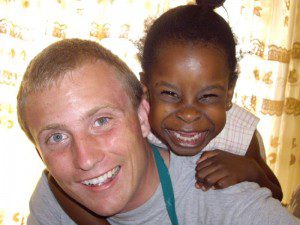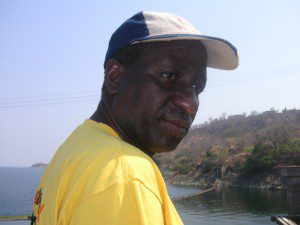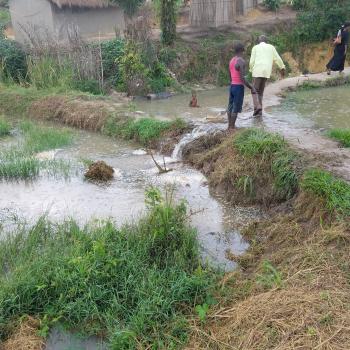If you don’t want to get involved with a charity to help a poverty-stricken child, then don’t ask for “more information” when these organizations advertise. They will send you a picture and ask if you’d like to sponsor this particular child. You will do it. You cannot look into a child’s eyes and say, “No. I don’t want to help you.” This is our human response to what philosopher Emmanuel Levinas terms “the face of the other.” He suggests that the human face carries within it the commandment “Thou shalt not kill”–which must include a footnote: “or allow to die if you personally can prevent it.” In David Grossman’s On Killing, he reveals that most soldiers vomit after their first kill, if they haven’t been desensitized. We get sick when we violate our humanity. We have to be trained to quit feeling. We have to learn to not respond to the human face.

On April 15, I saw the film Mary and Martha, about two women—one an American and the other English. Both have lost their sons to malaria in Africa. We see them work to come to terms not only with their inestimable losses, but with this disease, which claims so many lives beyond the First World borders. Victims die in the lands where slavers once sailed to hunt human treasure and bring it back to “civilization” in chains.
I am intrigued by the fact that the protagonists are white. I think it was a calculated decision by the filmmakers. “Who will guide our audiences into Hell? It must be someone the audience can relate to. Africans already know about malaria in deeply personal ways. Americans and Brits do not. It is a distant disease for them. So let us empower two white women to be our guides.”
Hilary Swank and Brenda Blethyn give stunning performances. The African children do not perform; they play. We cannot resist our instinct to love them.
In the first plot point, Mary (Swank) decides to take her son on an adventure in Africa. As she checks with a health office to learn about risks of this mother/son trip, the worker easily dismisses malaria because it’s winter on the African continent. That’s the fatal moment—the quick dismissal of something none of us can afford to dismiss, regardless of the season.
Might this dismissal be emblematic of ways we excuse ourselves from serving impoverished people? Is there any chance that we dismiss problems in other places simply because they are OTHER PLACES? Have we failed to recognize that every child is a child of this generation, and thus OUR child, and that our destinies are intertwined?
As Mary and Martha offer testimony about the disease to a U.S. government committee, Mary stops, unable to find just the right words. Martha steps forward and starts showing the pictures of African children who have died of malaria. She talks about what each had wanted to do in their lives. We remember the farewell sign they had made her when she returned to England: “We are all your children.”
That is ultimately the message, and one that should awaken us to action.
I took Chiloba Chirwa with me to the film’s screening. He was a “special guest”—one who had experienced malaria himself. What I didn’t know until we were driving there was that his father, Jacob, an accomplished Zambian actor/playwright with his best work still before him, had died of cerebral malaria—a degree of the illness in which the parasite invades the brain and systematically shuts organs down. Jacob Chirwa was only in his fifties. Chiloba fielded questions along with officers of “Malaria No More” and the organization’s ambassador, Mary Ann Huntsman.

We, the audience, came away with a new sense of responsibility and commitment. We also come away with some astonishing facts, as spoken by Mary’s father, played by James Woods:
Did you know that if you take every single person killed in a terrorist act around the world in the last 20 years — and add to that every life that’s been lost in the Middle East since the Six Day War in ’67 — and add to that every single American life we lost in Vietnam and Korea — and every single other military conflict America’s been involved in since then, Iraq, Afghanistan… If you take all those lives — that we’d all have given so much to save — you’ve still got to multiply them by two to get to the number of kids who die of malaria every single year.
I am personally committed to the mission of Malaria No More, which linked up with HBO to make and publicize this film. Please at least look at their page.













